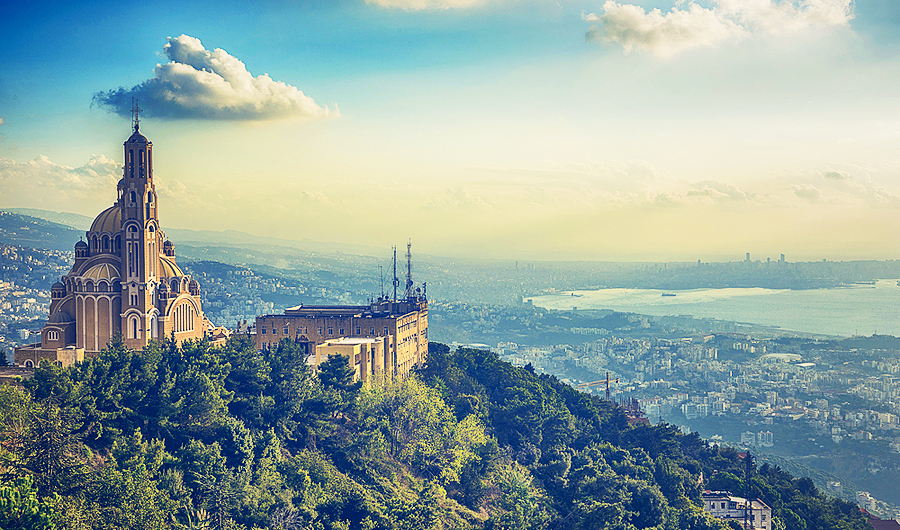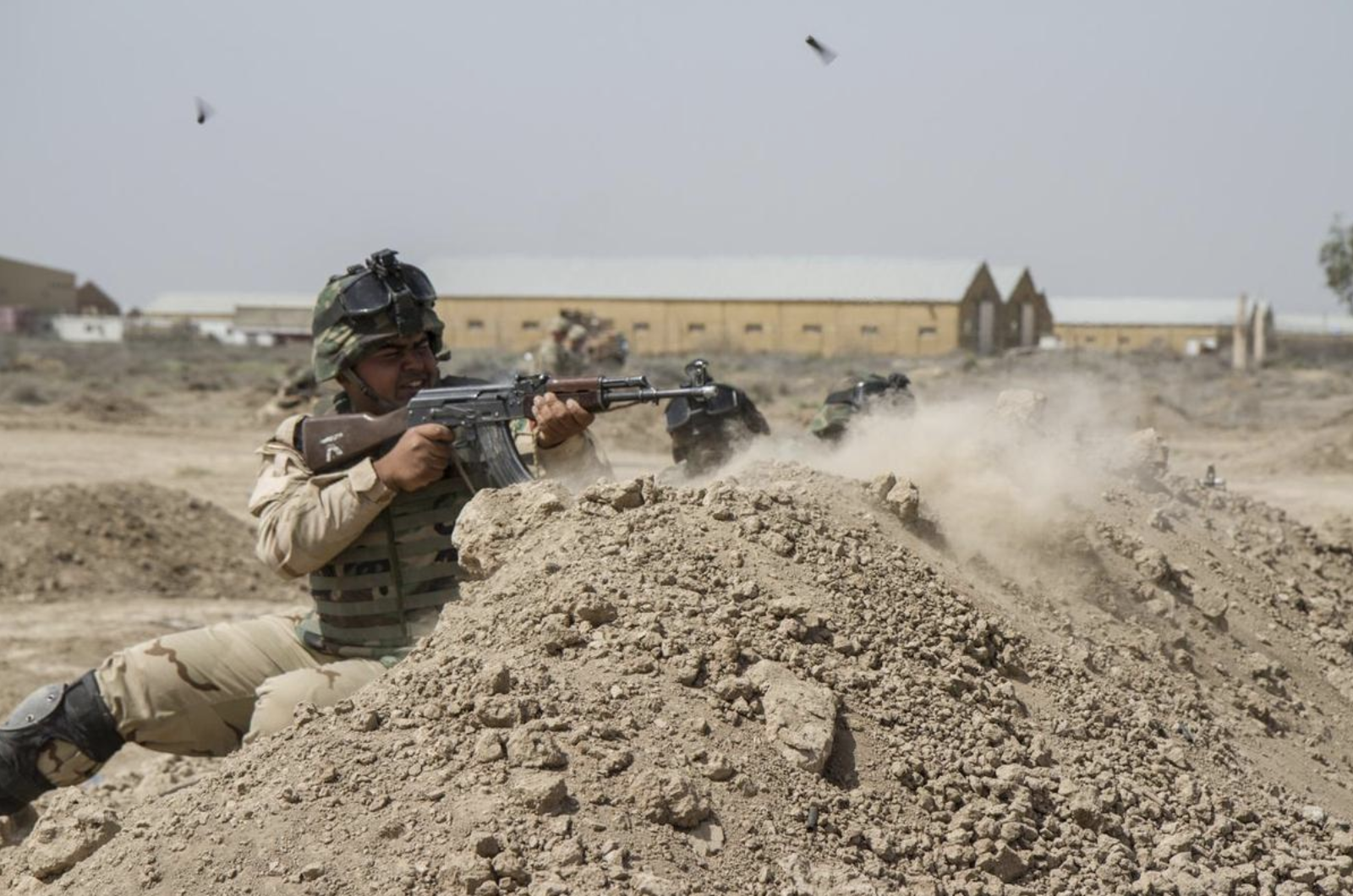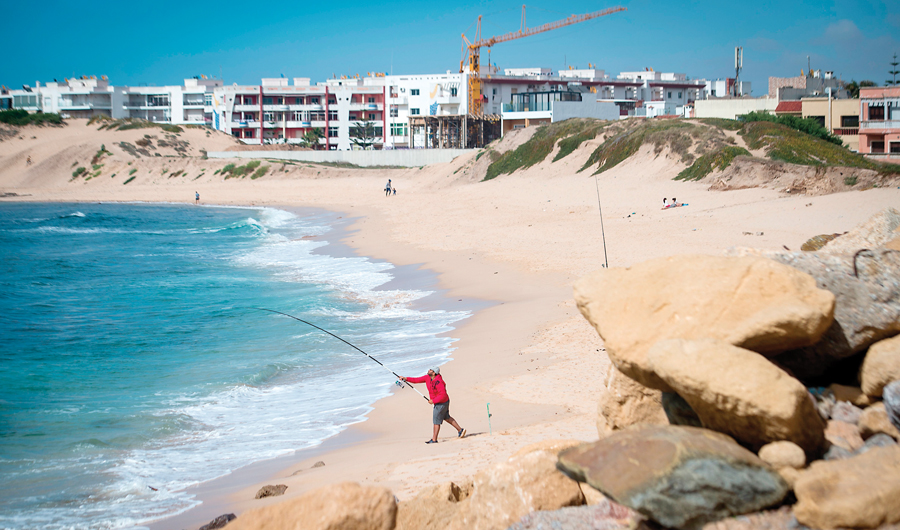Lebanon arrests Syrian plotting Daesh bomb attacks on churches
BEIRUT: A Syrian national has been arrested in southern Lebanon on suspicion of involvement with the Daesh terrorist group. It is alleged he discussed with other people potential locations, including churches, for attacks in Lebanon where the largest numbers of people could be targeted and killed.
It is thought that they were aiming to emulate similar Easter attacks in Sri Lanka. Daesh leader Abu Bakr Al-Baghdadi released a video message in April in which he praised the Sri Lankan terrorists.
A security source confirmed that a Syrian man has been detained and investigations are continuing. He added that the arrest “came on the basis of a professional intelligence operation” and that the security forces are working with external parties.
The General Directorate of Internal Security Forces (ISF) said that as a result of “preventive and proactive security operations conducted by the Information Division of the ISF concerning the monitoring of activities of serious terrorist cells, especially those affiliated with Daesh, the division was able to monitor and identify a resident of southern Lebanon who was active on social media spreading the ideology of the organization and recruiting people for it.”
It continued: “A special force from the Information Division arrested a person named Z.M. who was born in 1999 and is a Syrian residing in the town of Yater. The investigation found that he was promoting the ideology of Daesh through social media by creating a large number of channels and groups on a number of applications that follow and publicize publications of the Daesh organization.”
Yater is a village near Tyre in Southern Lebanon. Locals said that Z.M. was arrested six days ago. He worked in construction and agriculture and lived alone in a house without a family, they added.
The ISF said that the man “was associated with people outside Lebanon and cooperated with them to establish online groups to spread and promote Daesh ideology. After publishing the video in which Abu Bakr Al-Baghdadi blessed the operations in Sri Lanka…the detainee bought spray paint and…sprayed on one of the walls at the entrance to Yater slogans containing the words ‘Grandson of Abu Bakr Al-Baghdadi’ and ‘The Islamic state.’”
Preliminary ISF investigations found that the detainee “discussed with a number of those he communicated with the idea of carrying out actions for the organization in Lebanon, including entering a church and killing the largest number of people there.
“He also discussed with them the idea of targeting husseiniyas (congregation halls for Shiite ceremonies) in Shiite villages and towns. He also logged on to jihadist websites of the organization on the internet, including encyclopedias giving details of how to make explosives, and downloaded them to his phone.”
The ISF also said that the detainee “communicated with the Syrian S.B. (born in 1990), who has also been arrested, and tried to recruit him to embrace the ideology of Daesh. He said that at the time of his arrest he was still in the process of planning and had not taken any practical steps.”
The security source did not specify whether Z.M. is a Syrian refugee, a laborer working under the sponsorship of a Lebanese citizen, or in the country illegally. However, he stressed: “What this person did has nothing to do with Syrian refugees in Lebanon.”
Lebanese army commander Gen. Joseph Aoun said on Monday: “The army is dealing today with an unconventional terrorist enemy hiding among people, where the complexities are many and unclear.”
He added: “The rapid response of the (security) units to the terrorist attack in Tripoli recently confirms the importance of the principles that we learn in the College of Command and Staff.
“Terrorism is waiting for opportunities, through sleeper cells, to spread hatred in society. However, the improvement and readiness of the intelligence community has thwarted many of these attempts, and those that managed to evade them were eliminated by other security units.”

Sri Lankan intelligence chief sacked over Easter attacks probeSyrian Kurds hand over 12 French orphans from Daesh families



